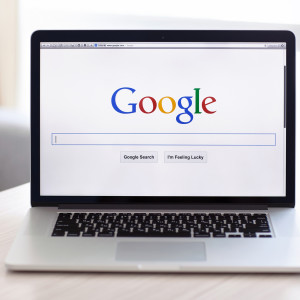The European Union reached an agreement on its updated Copyright Directive this week, after proposing changes to the directive last fall, reviving the debate over intellectual property rights, censorship and competition in the internet economy.
The biggest changes are in Articles 11 and 13, which require tech platforms like Facebook and Google to pay content creators like newspapers, journalists, artists, musicians and others for distributing or replicating their intellectual property. Another notable change is the requirement for tech platforms to regularly scan their sites for copyright infringement, and to take down any content infringing on creators’ intellectual property rights. This is also known as an “upload filter.”
Think tanks like Public Knowledge and the Electronic Frontier Foundation roundly condemned the updated Copyright Directive, arguing the changes will cause censorship and reduce competition between tech platforms, citing the virtues of a “free and open internet.”
The EFF supported an EU campaign in December 2018 to stop the changes from going into effect. Tech platforms, including Facebook and Google, oppose the changes as well.
“Articles 11 and 13 of the Directive are reckless giveaways to the legacy entertainment and media industries that will restrict legitimate online expression, entrench the power of dominant internet companies, and make it harder for all of us to share and access trustworthy information,” Public Knowledge Global Policy Director Gus Rossi said in a statement provided to InsideSources.
The EFF published a blog post condemning the final, agreed-upon changes to the Copyright Directive, saying they will actually hurt content creators instead of help them.
“Some of its clauses gave artists and scientists much-needed protections: artists were to be protected from the worst ripoffs by entertainment companies, and scientists could use copyrighted works as raw material for various kinds of data analysis and scholarship,” EFF Special Advisor Cory Doctorow wrote. “Both of these clauses have now been gutted to the point of uselessness, leaving the giant entertainment companies with unchecked power to exploit creators and arbitrarily hold back scientific research.”
Doctorow and Public Knowledge fear the upload filters are “a gift to fraudsters and criminals, to say nothing of censors, both government and private,” because the filters operate under black-box algorithms and often do a poor job sifting copyrighted material from public domain material.
Doctorow also argues that smaller tech platforms will find compliance with the directive too expensive and burdensome and will exit the market, solidifying the biggest platforms (like Facebook and Google) as dominant players in an internet oligopoly.
Roslyn Layton, a visiting fellow specializing in tech policy at the American Enterprise Institute (AEI), thinks opponents of the updated directive are too fixated on extreme, unlikely scenarios.
“The critics will always want to point to the extreme far off example and ignore the masses of people who don’t get compensated at all,” she told InsideSources. “I think it’s more important to preserve the incentives for artists to make a living for their work. I’m not worried about censorship. We’re flooded with content. Our problem is we have too much. We don’t have enough hours in the day to view it all.”
Layton thinks all tech platforms — especially the biggest ones, like Facebook and Google — should pay content creators for distributing and replicating their content. The way the system operates, tech platforms essentially rob creators of fair compensation for their own created works.
“The internet was never interested in paying the creators of the content,” she said. “When you’re Hungarian or Bosnian, unless there’s some way to license your works, there’s no way to get compensation for your work. The Google model puts zero attention to that. There are fixed costs to create content, and one way or another you have to recoup them, and Google has never been interested.”
Instead of reducing competition between tech platforms, Layton believes the updated directive will encourage specialization and actually diversify the market.
“I think it will encourage specialized platforms in particular mediums with a particular audience,” she said. “You can look at newspapers, like the Wall Street Journal, the subscriptions are free and paid. It should actually allow diversification away from the large giants.”

